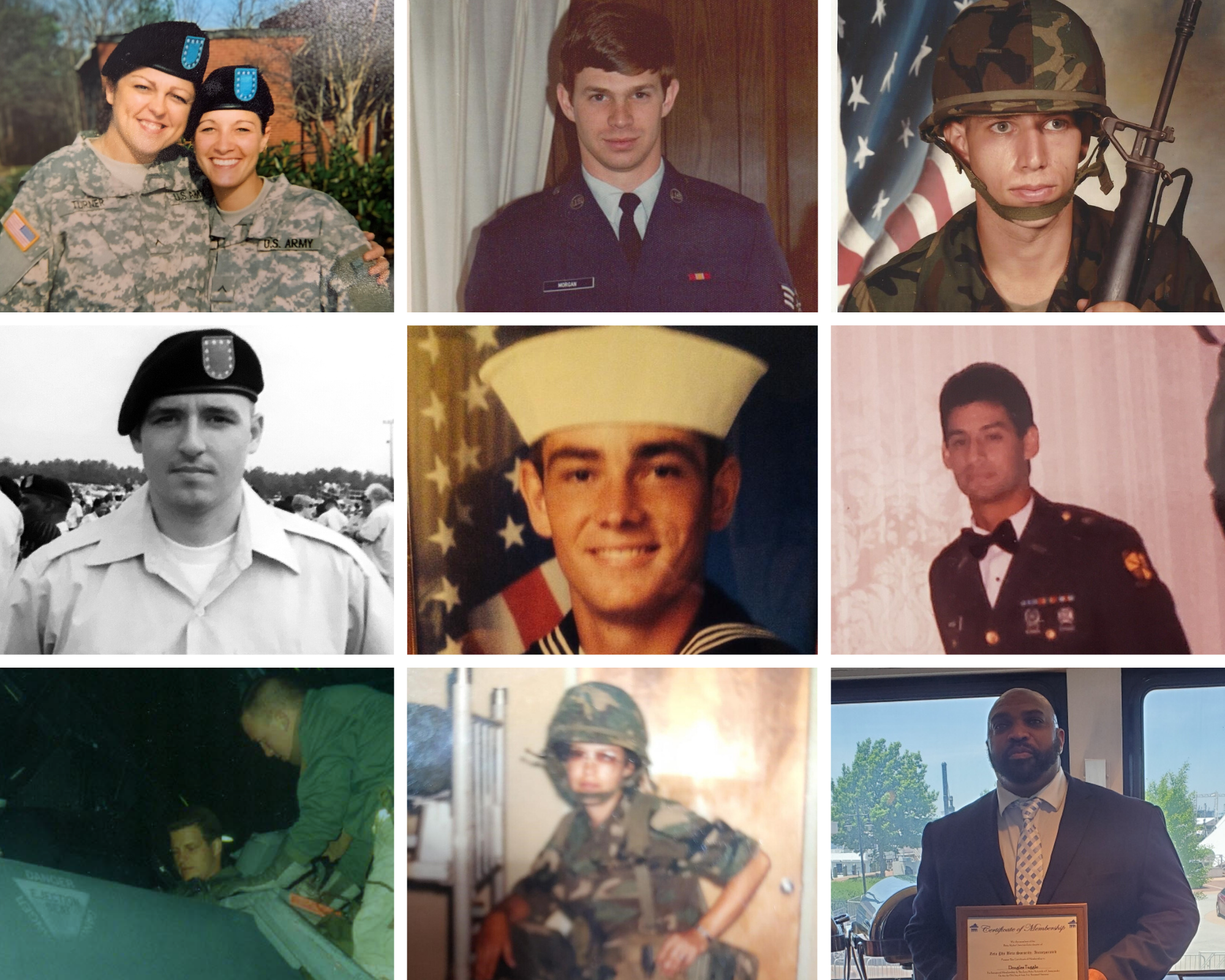10 Tips for Writing the Best Graduation Speech
Good afternoon everybody…
We won’t sugar coat it. Writing a speech is tough. It’s why people get paid big bucks to do this as ghostwriters for others. It’s why great lines from great speeches get passed down from one generation to the next.
But relax. You’re not the President of the United States addressing the nation trying to keep things calm after alien spacecraft have just landed on the White House front lawn.
Odds are, instead, you’re one of two things. You’re either the valedictorian (congrats by the way) or you’re the person who submitted their name and speech idea to the graduation committee and was selected to speak at graduation as well (so congrats to you, too.)
Now, about the speech. While it’s certainly up to you what you can say, we just thought that we’d pass on a few tips on how to not make your speech the kind that doesn’t have lines getting passed from one generation to the next – because of how awful it was.
So, with that said here are our top 10 tips for writing a graduation speech. And, some bonus tips for giving a virtual graduation speech.
1: Start out by thanking someone.
The fact is you probably didn’t make it through high school all by yourself. Very few people, if any, do anything without a lot of help from someone else. So, show a little humility.
It’s always good to recognize parents, teachers and friends. But what might be nice to do instead is to publicly thank a specific person. One person who helped you, who made a difference and believed in you. Maybe it’s a coach, a counselor, a teacher or your dad. Whoever. Thank them in front of everybody. And then encourage everyone else to find someone who was instrumental in helping them make it to graduation and tell them to thank them as well.
2: Don’t make it all about you.
If you’re the valedictorian, then once again, congratulations. You did well. But nobody really just wants to hear about why you made it to the podium and they didn’t. That’s not to say you can’t infuse personal observations in your speech, just don’t turn this into a “My life in high school” speech.
Matter a fact, instead of just crafting your speech in the cold confines of your bedroom, why not instead go out and talk to your classmates. Find out what they’re interested in. What has inspired them and what they’ll remember most. Your class’ graduation should be about all of the students, not just you. It’d be nice if your speech recognized all their collective memories.
3: Google it.
That’s what it’s there for. Looking up famous speeches online is a great way to get inspiration. Whether it’s a YouTube video of comedian Seth MacFarlane’s commencement speech at Harvard (hilarious!) Or reading Winston Churchill’s famous “We shall never surrender” speech (goosebumps!) Seeing how other people have done things well in the past is a good point of reference for how you should be doing it today.
4: Keep it short and sweet.
Yes, your speech is important, or you wouldn’t have been asked to give it. But don’t go overboard. People aren’t there to see you drone on and on. They’re there to either celebrate their own accomplishments or the accomplishments of family and close friends. You don’t want people to be checking their watches during your speech or hoping you’ll hurry things up.
Therefore, don’t ramble on forever. Your speech should be no more than 10 minutes unless you’ve been given instructions otherwise. Think about how long do you usually sit still for a YouTube video? There’s a reason the more popular ones aren’t very long. Learn from that.
5: Don’t say anything you’ll regret in 20 years.
Matter of fact, let’s amend this to, “Don’t say anything you’ll regret 10 minutes after saying it.” Most kids who are selected to be graduation speakers are the kind who have always set a good example. That said, every year, there’s always a few who want to take a controversial stand, call out a teacher or administrator, or make an inappropriate joke. Hint: Don’t be that kid. Instead, write a speech you can show to your own son or daughter 20 years from now and say, “See, that’s how it’s done.”
6: Inspire your fellow students.
Commencement isn’t just about celebrating the fact that you finally earned your diploma. It’s also about looking forward to all the places life will take you after graduation. You want your fellow students to leave your speech feeling as though they’ve got the world by the tail and can do anything now that they’re graduates.
7: Don’t use famous quotes.
Famous quotes are great for yearbook entries, not graduation speeches. So, put the famous quotes book away. You are the graduation speaker. People want to know what you have to say. The crowd doesn’t want to hear what Nietzsche or President Kennedy or King Ferdinand has to say.
8: Don’t write “what’s expected.”
If you write a speech that’s expected, then what’s the point in anyone showing up? If it’s something we’re all expecting to hear, then the odds are we’ve already heard it and there’s no need to hear it again. Be original.
9: Be specific.
Details make things interesting. There’s nothing particularly original or interesting when you say something like, “You know during our freshman year, we were somewhat unsure of ourselves, lost in this big school, and apprehensive about the future.”
But the details that can make it far more personal and relatable.
Example: “You know, it’s amazing how much we’ve all changed in the last four years. On my first day here at school, I could barely reach my locker. I remember thinking most of the senior football players probably were at least 28-years-old. And sadly, I got lost trying to find Freshman English and had to ask for directions – twice. Today, I’m proud to report that I can reach my locker, the football players don’t look older than I do, and I can find any class on this campus. And if all that’s true, just imagine how different will we all be two, four, or ten years from now.”
10: Make your final point your most important point.
There’s a reason we’ve saved this for last. Obviously. But the contents of your speech should all along be leading up to the final point of the speech – which will be the most important part. This should be the line that people remember, and that people take away from your speech. You can end it with a quote (not someone else’s famous quote – we already discussed that), a memory, or words of wisdom to impart on your class, just as long as you end it with a punch. The punch can be a funny story. It can be a snappy re-cap, or a call to action. Such as Kennedy’s inauguration speech where he said, “My fellow citizens of the world: ask not what America will do for you, but what together we can do for the freedom of man.”
BONUS TIPS! The Virtual Graduation Speech
Given the COVID-19 pandemic, many schools have either cancelled their graduation plans, or postponed them. Others, however, have chosen to do them virtually. If that’s the case with your school, here are a few tips to help your virtual speech go as smoothly as possible.
First of all, you’ll probably want to change your speech to state the obvious. That it’s being given virtually. Whether or not that changes the rest of your speech will be up to you.
You’ll also want to make sure you look your best. Be sure your light source is in front of you or to your side. If the light is behind you it will make you look too dark. Keep the background clear of distractions. Look at your web cam when you speak, not the screen, and finally use the same gestures and mannerisms you would when normally speaking.
From a technical standpoint, be sure your microphone is turned on and, if it is at all possible, do a rehearsal to make sure your equipment is working properly. Also, place your camera (computer) on a level surface that’s not going to shake or wobble.
Whether you stand or sit down is up to you. However, this is one instance where YOU get to determine the atmosphere when giving a speech, so simply do what makes you feel the most comfortable.
In the end, your speech shouldn’t be overwhelming or daunting. Instead, just think of it as connecting with your graduating class one last time before you all go your separate ways. And, as a plus, if you’re planning a career which will involve public speaking, you can think of this as a great way to practice.
filed under:
10 Things I Wish I Knew Before College
Heading off to college is an exciting time in one’s life. It’s when you really begin to feel like an adult – and people start treating you as one as well. It’s not just the independence from your parents that makes it exciting, you’re also beginning your journey of deciding what you want to do with your life. You learn as much about your future field of endeavor as you do about yourself. But, like with any new chapter in your life, there come unexpected revelations. Things that looking back on you might have said, “Boy I wish I’d known that going in.”
It’s with that in mind that we offer the following 10 observations on ways we think we can help you enjoy and get more out of your college years.
#1 DON’T GET BEHIND
If you’re on track to attend a post-graduate program, such as a masters or a doctorate, and your GPA is going to dictate which school you will be able to attend, don’t fall behind in hopes you’ll catch up later. You need to keep your GPA high for all four years. This advice could also apply to undergrads who won’t be doing any post graduate work in that you need to keep up with your classes throughout the year and not hope that cramming for the final will help save your final grade in a course. Besides, businesses also want to know what your GPA was on your resume, so don’t slack off.
#2 WATCH WHO YOU SOCIALIZE WITH
You don’t need toxic people in your life, and it’s so easy to get swept up in the social scene in college. Both from a partying point of view and from wanting to hang with the “cool kids.” Don’t hang out with people who treat you poorly, or with people who have bad habits, such as a history of partying all the time. There’s nothing wrong with having some fun, but that’s not why you went to college. You’re there to learn. Both from a scholastic point of view and from a social point of view.
#3 TAKE A RANDOM CLASS THAT INTERESTS YOU
College is a time to learn. Not just scholastically but a time to learn more about yourself. If there’s a class that interests you, or if there’s a class you hear has an amazing professor teaching it, why not check it out? Not every college credit has to be applied towards your degree, and sometimes you are paying for a certain number of credits anyway – whether you take them or not. So, even if it’s not something you think you’d like to do for a living it might be a nice break from the routine and keep things interesting.
#4 STAY HEALTHY
Just because you’re away from home and a parent is no longer pestering you to “eat your vegetables” that doesn’t mean you should let yourself go. There’s a reason you need to eat your vegetables, and there’s a reason you need to exercise. The “Freshman Fifteen” is a real thing. A healthy body can help sharpen your focus and build your self-confidence. So, make sure you’re exercising regularly and eating mindfully. Maybe get some workout buddies and turn it into a social situation. When there’s more than one person involved it makes it harder to try and blow it off.
#5 RENT A HOUSE
Freshman year you’ll probably be forced to live in a dorm, but after that you’ll be able to decide where you want to live, and while it may sound silly, by renting a house with other people you are forcing yourself to socialize with others and learning how to get along. By living alone, you can slip into anti-social behavior habits and find yourself spending an inordinate amount of time doing “screen time” by yourself. When you live in a home with others you’ve got a social network to support you if things get tough. And you’ll still probably have your own room for when you need some alone time. As an added plus, renting a house with multiple roommates is usually more affordable than renting an apartment and living on your own.
#6 GO TO YOUR PROFESSOR’S OFFICE HOURS
Some may call this “brown-nosing.” Those in-the-know call it a “smart move.” Your professors see hundreds, possibly thousands of students in their lifetime. Half the time their students are taking the course simply because the school requires it, not because they’re interested in it. That means most of their students aren’t even interested in what they’re teaching. So, if you want to stand out, stop by and say hello. They won’t necessarily automatically give you an A for doing so, but by making it known you’re interested in what they’re teaching they may give you a little leeway, or even give you some tips on how you can best prepare for their course and their tests. Also, in just four years or less, they won’t be your professors anymore, they’ll be your peers and they can possibly help you find a job.
#7 COLLEGE ISN’T SOMETHING YOU’RE JUST SUPPOSED TO “GET THROUGH”
That’s high school. College is a time when you’re starting to take courses in what you’re interested in doing for the rest of your life. Pay attention. The professors aren’t the old dinosaurs you think they are. Take advantage of all the opportunities your college or university provides. You’re paying for it. So, get the most for your money. Use the advisors. Use the help they offer when it comes to finding a job or internship. Pick your professor’s minds. Challenge them. “Doing the minimum” isn’t a great way to get the most out of college. Especially not when you’re paying the kind of money you are for your degree.
#8 MAKE FRIENDS WITH PEOPLE WHO ARE GOING TO BE IN YOUR INDUSTRY
Are you going into chemical engineering? Then take a look around your chemical engineering class. These are the people who will be working in your industry. This goes for any industry. Make friends with the ones who seem interesting and smart. These are going to be the people who will be successful and they’re the ones you will want to know. They can be helpful down the road when it comes to either finding work or having a successful ally on your side.
#9 ACT LIKE YOU’VE ALREADY GRADUATED
And by that we mean get to know people in the industry you’ll be going into. Network with them like you’re already employed. Ask people if they’d be willing to meet you for 15 minutes some morning. Tell them you’ll buy them a cup of coffee in exchange for the opportunity to quickly pick their brain. People love to give advice to students, and odds are, if you asked the same question of five people in the same field, you’ll probably get five different answers. Different perspectives on things can be very informative. These little tête-à-têtes can also be a way to express your interests about any internships their companies may offer students over the summer.
#10 REALLY THINK ABOUT WHAT YOU WANT TO DO
Too many people spend their college years floundering trying to find what it is they want to do with their lives. Now while college is certainly there to help you find your way, it’s not there to figure it out for you. The more you can put into college, the more you will get out of it. The sooner you can narrow in on what you want to do the sooner you can make connections and land internships. Because if you wait until your senior year, you’ll have wasted three years where you could have been networking, studying and finding job opportunities.
All in all, however, college is an exciting time. It’s your first big step in becoming independent and learning more about yourself. It’s also a time when you get to take classes that are specifically geared towards what you know you’re interested in. Just keep up with your classwork, don’t party too hard and you’ll have four years of memories to look back on fondly for the rest of your life.
filed under:
10 Things I Wish I Knew Before High School
High school is a time when teenagers are beginning their transition into young adults. It’s a time when just about everyone is socially awkward, but only a few are wise enough to know that’s the case. It can probably best be described by the opening line of Charles Dickens novel, A Tale of Two Cities: “It was the best of times, it was the worst of times.”
Because one day you’ll wish you could stay in high school forever and the next you can’t leave for college soon enough. To help there be more better days than worse, we’d like to offer the following 10 things we think every high schooler needs to keep in mind from day one.
#1 Even as a freshman you have to think about college.
If your ultimate goal is getting into the best college you can (which is the case for most high school students) the GPA that gets sent to colleges isn’t the GPA you get beginning the day you decide you want to get a good GPA. It’s the GPA you get from the very first day of high school. Too many students try and make up for a lost semester or two from Freshman year only to find their GPA will never be what they ultimately want it to be. Don’t be one of them. So, from the very first day of high school you need to be focused and getting good grades.
#2 Try new stuff.
High School’s probably the first time in your life when you get to actually pick some of your classes. So, try some new things. Also, look into joining some clubs. Try out for a few sports. Run for Student Government. You may not make the team, or get elected, but then again you might. The Hall of Fame hockey player Wayne Gretzky once said, “You miss 100 percent of all shots you don’t take.” So, take a few shots. You’d be surprised you’re probably a lot better at things than you think.
#3 Build relationships with your teachers.
High School is when you begin to realize that not all teachers are out to “get you.”
Some of them are actually pretty cool, and high school is when they begin to start treating you like the adults you’re starting to be. It’s mature to have a friendly relationship with the ones you like, and those relationships can actually help you out in the long run. You can always go back to them for help and advice, even a college recommendation letter. That said, there’s still probably going to be a few who you might just want to steer clear of and it’s probably pretty obvious who those are.
#4 These are not “the best years of your life.”
Don’t listen to anyone who says otherwise. High school is mostly a journey toward discovering yourself. You’ve got your whole life ahead of you. The best is yet to come. That’s not saying you won’t develop friendships that will probably last a lifetime, but you’ve still got a lot of growing, and meeting new people, to do. Keep that in mind and put everything in perspective.
#5 Working hard pays off.
No one will ever regret working hard. Often, in the middle of an all-nighter, you may start asking yourself if all this hard work will ever really pay off. It will! All-nighters are not fun. Feeling overwhelmed with work is not fun. What is fun is the result and the immense feeling of pride that comes with it. That said, if you’re doing more than one all-nighter a semester, then you need to work on your time management skills, because you’ve obviously got your current priorities out of whack.
#6 It’s just one grade.
Yes, grades are important. That said you’re probably not going to get straight A’s through all four years. If you stumble, tell yourself, “It’s just one grade, in one class, in one year of school.” Then pick yourself up, dust off the blues and re-double your efforts to make it up on the next exam.
#7 Watch what crowd you run with.
You might think that the people who everyone thinks are “cool” or “popular”, are just that: cool and popular. As it turns out, that’s not always necessarily the case. That’s not to say that there aren’t a few popular kids who are also cool, interesting, and fun to be around; there absolutely are. But don’t go changing who you are or what you believe to hang out with people you think are “cool.” Stay true to yourself and the real friends you have. They will be there for you in the future a lot longer than transitory “cool” friends who aren’t really your friends to begin with.
#8 It’s never too early to start learning about money management.
High School is the time when you become old enough to actually get a job (usually a summer job.) This is a good thing to do for two reasons. 1) The experiences and lessons you learn from being in the workforce are invaluable and 2) Having professional experience at an early age puts you ahead. Try to save half of your earnings – or at least something. Don’t just blow it all on pizzas and soda. If your school offers some sort of finance or economics class, take it. If that’s not an option, do a little online research. Money matters. Educate yourself. The sooner the better.
#9 Practice time management.
Time management is going to be critical to your success both in high school, college and life. So, start by working with to-do lists and/or calendars. The best thing about creating to-do lists and using calendars is that it doesn’t have to be an elaborate or time-consuming practice. The second-best thing is that these lists can make a huge difference in your efficiency and output. Visually seeing a list of all the stuff you have to do helps you understand just how much there really is. That’s when you can begin to start paying close attention to not only how much free time you actually have to spend but think more intently about who you want to spend that time with. You’ll learn to not let people waste your time and learn you shouldn’t be wasting theirs either.
#10 Stop worrying so much about your clothes.
If you like to dress up for school, that’s great. If you’d rather save the energy for the weekend, that’s also great. Really, it’s OK if you aren’t wearing your best clothes each and every day. In reality, most people probably don’t even notice that much what you’re wearing because they’re too concerned about their own outfit. Choose an outfit based on what allows you to feel confident and comfortable, instead of what other people will think. People will likely notice your confidence before they take note of what shirt or shoes you’re wearing.
High school can be a trying time, but it can also be a great time. Just stay true to who you are and you’ll be fine. Find a good group of friends and get involved in things you find interesting. As Kevin Atlas says, you just need to believe in you.
filed under:
College Graduation Hood Colors
What Color is Your Hood?
In addition to the graduation gown, stole and cap there is also the graduation hood.
The graduation hood comes in three sizes to help distinguish the college graduate’s degree, with the smaller hood signifying a bachelor’s degree, the medium-sized hood representing a master’s degree and the large-sized hood representing a doctoral degree.
In addition to various sizes, the hood also comes in various colors. The color of the satin lining of the hood will represent the school of the graduate and the soft velvet border will indicate the field of the graduate’s study.
While there are specific colors that have been established for certain degrees, (defined by the 1893 the inter-Collegiate Costume Code) a few schools may have established their own colors for certain degrees. Below you will find which color the American Council on Education prefers for which degree.
Shop for all your graduation essentials today.

Agriculture (Maize)

Arts, Letters, Humanities (White)

Commerce, accountancy, Business (Drab)

Dentistry (Lilac)

Economics (Copper)

Education (Light Blue)

Engineering (Orange)

Fine Arts, Architecture (Brown)

Forestry (Russet)

Journalism (Crimson)

Law (JD, LLD, LLB) (Purple)

Library Science (Lemon)

Medicine (Green)

Music (Pink)

Nursing (Apricot)

Oratory Speech (Silver Gray)

Pharmacy (Olive Green)

Philosophy (Dark Blue)

Physical Education (Sage Green)

Public Administration, Foreign Service (Peacock Blue)

Public Health (Salmon Pink)

Science (Golden Yellow)

Social Work (Citron)

Theology (Scarlet)

Veterinary Science (Gray)
filed under:
Kindergarten Graduation
Why this occasion is so important

A cynic may also say that school plays are just as useless since the work will never be seen on Broadway, but the fact is, celebrations like these can help a child become more comfortable in front of crowds and they can help build a child’s confidence.

It’s also as much for the parents as it is for the children. Parents are proud that their child is moving on to the next step in their educational development and want to celebrate this accomplishment.
So, in addition to the actual ceremony, what are some other ways to celebrate your child’s kindergarten Graduation?
You can start by letting friends and family know. Announcements are a great way to get the word out to family and friends that live out of town or those that don’t see that often.
And what’s a celebration without a cake? We’re not saying you have to do it yourself. Many grocery stores have bakery sections where they can personalize a pre-made cake for you, or you can order a cake especially for the occasion with whatever flavor cake and frosting you want.
Many towns now have a t-Shirt shop that will screen print your own design, or message, right on the t-shirt. You could either have a single t-shirt made up especially for your child, or if family is coming over to celebrate you could have one made up for everyone who’s attending, to show support.
While this may sound obvious, don’t forget to get a special graduate shot of your child. Sometimes things can get so hectic that important moments like this can slip by and you’ll find yourself regretting the mistake later. So, set aside a few special moments to capture your son or daughter in their special graduate dress.

Memory boards are also a nice touch to add. Note the graduation date on the board and try to list as many things of significance that you can think of for your graduate’s year in kindergarten. What was their favorite subject? Did they learn anything special that year? Like learning to ride a bike. Who was their best friend? What was their favorite book? Things like this a fun to look back on in the future.
No, kindergarten graduations aren’t as momentous as their collegiate counterparts, but that doesn’t mean they aren’t an important milestone in your son or daughter’s life. It’s exciting for the children, who often have happy memories of dressing up in fancy clothes, singing songs, being given a certificate (maybe for the first time in their life!) and celebrating with party food and games after the ceremony.
So, do what you can to make the day as memorable as possible. Before you know it they’ll be graduating from grade school, then high school and then college.
filed under:
Did someone say, “Graduation Party?”

Because if they did we’ve got a few suggestions to help make it the best graduation party ever.
Photo Backdrop
Every party is a photo op just waiting to happen. The best way to remember yours is with a really creative photo banner to take pictures of family and friends in front of. Maybe include your graduation year. Ideas include a chalkboard painted background. Or the shape of the state where the graduate will be going to school the next year. Or perhaps a montage of photos from family and friends. Go crazy and have some fun with it.
Balloons, balloons and more balloons
Big balloons. Helium-filled balloons. Balloons filled with confetti. Balloons that people can twist into fun shapes. Balloons to tie on the mailbox out front to let people know where the party is. You can never go wrong with lots of balloons. Maybe put graduation caps on top of some of the balloons.

Refreshments
Keep with the graduation theme by having cookies and appetizers shaped like grad hats or rolled up like a diploma scroll. Maybe use traditional food from the area of the country where the graduate will be moving to or attending college.
Strings of outdoor lights
Strings of outdoor lights improve any backyard, and they draw people outside so they’re not cluttering up the house. You can use then to hang banners from as well.
#SocialMedia
Be sure to put little notices all around of what hashtag you want people to use when posting to social media. That way it’s so much easier to find the photos later. Example: #PamsGradPartyDallas

Set it and forget it drink supply
Rather than having to constantly replenish a cooler, why not get a couple kiddie pools and fill them with tons of ice and a huge amount of drink options.
Card Display
You don’t want to have to keep opening cards while you’re trying to socialize. Instead have a card table that you can direct people to, along with a holder on that table they can put their cards in. One suggestion is to get a vintage suitcase from a thrift store, cut a big enough slit in the top for cards and hang a sign near it that says, “I’m off to [COLLEGE NAME]” or some other travel-related phrase.
Easy Environmentally-friendly Clean Up
Place separate baskets around the house and grounds with labels on them for recycling. Some can be labeled trash but others for glass or plastic – depending on how detailed and specific they recycling is in your home town.
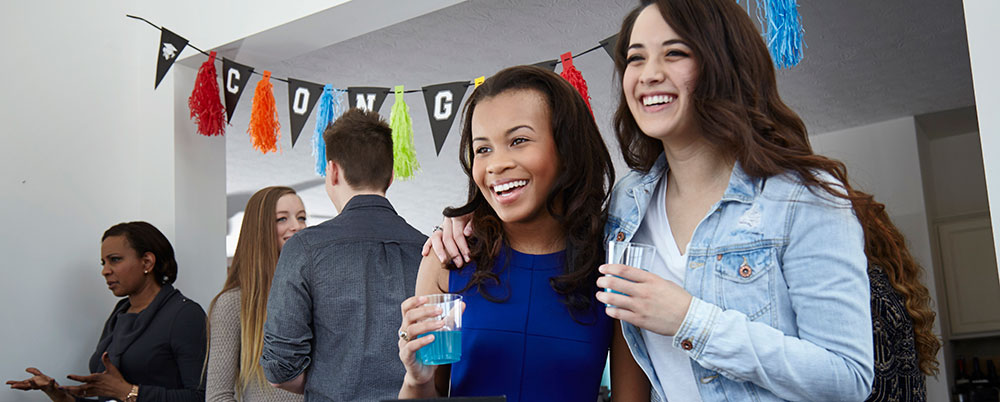
Old Photos
It’s fun for family and friends to see your journey through high school or college with photos everywhere. Remember, not everyone at the party was there for every memorable moment in your life. So, lots of photos are a great way to share your memories. Find fun ways to display them. You don’t have to be limited to just frames. Dangle them from balloons. Tape them to cups. Make a wreath out of them. Put them on stakes and line both sides of the driveway. Have fun.
Unique Guest Book
Guestbooks are a great way to remember who stopped by and who should get a thank you note. But that doesn’t mean they can’t be fun. Example: Have people sign a globe, or a suitcase to signify travel.
Take Home Bags
It doesn’t have to be all about you. Share the love by having some take home bags for your guests. Fill it with items that are related to the graduate’s life. It doesn’t have to be big expensive things. Example: If the graduate plays guitar, include a guitar pick in the take home bag.
Graduation parties are a great way for families and friends to get together. You’re not only getting together for fun, but you’re also celebrating a terrific achievement in someone’s life. So have fun, make it all about the graduate and provide lots of fun photo opportunities.
filed under:
How to Decorate Your Graduation Cap




I gotta be me!
Like a fingerprint, your grad cap is uniquely you. Some people like to be “traditional” and leave theirs blank, and there’s nothing wrong with that. As a matter of fact, you’ll probably find more black caps at graduation ceremonies than you do decorated caps. And in some circumstances schools actually forbid their students to decorate their caps. So, make sure you know where your school stands before you try and get creative.
But, if your school DOES let you decorate your cap and you’d like to express your creativity, here’s some thoughts and ideas to help you make your grad cap as unique as you are.
Supplies
First, you’re going to need some supplies. The local arts and crafts and hobby stores are probably the best place to go first. In most college towns there are probably some national chain options, but many towns, if they’re large enough, will also have smaller mom and pop art stores. A quick search on the web will show you your closest option.
Once there, the first thing you’ll need is a hot glue gun (if you don’t have one already). The hot glue gun will keep your creation from falling apart like a sugar castle in a thunderstorm. Don’t expect the old standby of white school glue to work nearly as well as a hot glue gun. And working with those super glues are just a disaster waiting to happen.
You’ll also want lots of colored paper, glitter, markers, scissors and whatnot. But really, after the hot glue gun, the supplies you’ll need are pretty much going to be determined by the design you’ve landed on.
Your Design
Some designs are word driven. They can be as simple as, “Hi Mom!” Many students will use their favorite quote from a movie, or from a philosopher. Others might put a bible verse on their cap. Another standby is to thank your parents. Whatever you decide to do, since words are just words, the creative side to this kind of cap is going to be the background and the lettering. Have some fun with the lettering. There are actually people who just do hand lettering for a living, so obviously the letters themselves can be a piece of artwork. For your background don’t make it too elaborate or people will have a hard time reading the words.
Other designs are more visually driven. If you’re a medical school grad you might put a picture of a heart on your cap, or an EKG heartbeat. Or if you’re a business student, then perhaps you might put a spreadsheet up there. These are all just simple suggestions. What you really should do is go online and be inspired by all those who have gone before you.
Here are a couple websites to get you started.
40+ Awesome Graduation Cap Decorating Ideas by For Creative Juice
60 Genius Graduation Cap Ideas by Personal Creations
In the end, it’s up to you what you put on your cap. The same way how you live your life is all up to you after graduation. So, be sure to make the best of it.




For more graduation tips, check out this article on what to wear under your cap and gown!
Photos provided by @scherffjones and are from McCormick High School in South Carolina.
filed under:
What to Wear Under Your Cap and Gown

Comfort is key
It’s time for graduation!
And that means it’s time for the traditional cap and gown.
Question is since you can’t JUST wear a cap and gown to graduation (don’t even try that), what’s the appropriate garb to be worn underneath?
In case you didn’t know, one of the historical reasons for high school and college caps and gowns was to homogenize the look when it came to handing out degrees. This way graduates who couldn’t afford nicer clothing were able to appear before the graduation audience in the same dress as their richer counterparts. When it comes to a degree it doesn’t matter how rich or poor you are. All recipients are equal. So, the idea here is to not stand out when it comes to your dress.
For your top
Keep in mind that the neck on a graduation gown is actually fairly low, so the shirt you are wearing underneath is going to show. So, for men, you should wear a collared dress shirt. Adding a tie would be a nice touch, but it’s not required.
For women, because of the low-cut neckline, a scoop-neck top with a modest cut, or a collard blouse is suitable attire to wear under your graduation robes.
For the bottom
Women can wear dress pants or a skirt underneath their gown. Just keep in mind that a full-length skirt will probably make your outfit look heavy, given the length of the gown. Bright colored bottoms can distract from the formality of the graduation ceremony, so stick with dark-colored skirts or slacks.
Men should either wear khakis or dark-colored slacks.
Dress for the weather
Unlike winter ceremonies, spring ceremonies often take place outside. So, you need to dress accordingly. Do not wear clothes that are going to have you sweating uncomfortably. Stick with a light fabric. Now, if your graduation ceremony is taking place in the upper part of the country, where temperatures can still be cool in the spring, you may want a heavier fabric.
Shoes
In case of rain, put on shoes that while dressy can also stand to get a little wet if they have to. Rain boots are a no-no.
For indoor ceremonies, both men and women should choose closed-toe dress shoes. No sandals or sneakers. For women, high heels can make it difficult to walk in, so shoot for more medium-height heels. Also, if the ceremony is outdoors you’ll probably want to go with wedges or platforms. You don’t want your heels sinking into soft soil.
Hairstyle and accessories
Given the tight-fitting nature of the graduation cap, hairstyles are limited. It’s best of you just wear your hair down. Up-dos, such as a bun or twist are probably not going to fit. Guys, just wear your hair as you normally would. Just clean, brushed hair is fine.
For accessories, students can wear a school class ring if they wish. Women should limit their earrings to simple and elegant options and you’ll want to stay away from tuck-clunky or quirky necklaces.
filed under:
Spotlight: 9 Veterans Share How their Military Experience has Served Them
When we talk about the importance of having a diverse workforce, we mean more than gender, race, age, etc. It’s also about a commitment to employing staff and aligning with partners who have a rich variety of life experiences.
Veterans possess a combination of skills, leadership training and discipline which are invaluable to our organization. Herff Jones is proud to have a number of veterans on the team, and we’re even more honored to know them.
Below, you’ll hear from just a few of the veterans across the Herff Jones ecosystem who dial into their military experience every day in order to strengthen and empower our organization to reach new heights.

Tony Madden
Manager, Management Control Systems
Branch: Army
Location: Kansas City
“My service in the United States Army provided me with opportunities that I would not have been able to experience on my own. I traveled the world, went to college, met amazing people, and learned what it means to be part of something bigger than yourself. Everything I’ve been able to accomplish in my life and career has benefited from my experiences in the military.
I carry the Army Values with me every day. If you spell out leadership as LDRSHIP, each one of those letters spells out the Army values: Loyalty, Duty, Respect, Selfless service, Honor, Integrity, and Personal courage. These values have allowed me to be a better person, which has enabled me to be a better leader.”
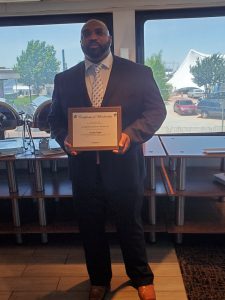
Douglas Tuggle
Frame Shell Assembly
Branch: Navy
Location: Virginia Beach
“My experience allowed me to travel the world and meet new people from all over the world. It taught me how to work with many different types of people and to adapt to change quickly. It also gave me the skills to be a great team player.”

Bill Morgan
Data Warehouse Administrator
Branch: Air Force (4 years); Air National Guard (8 years); and Army Reserve (9 years)
Location: Indianapolis
“Military taught me organization and persistence. I do not give up on a task and will keep working until it is completed. Also, I can work with many types of people due to the diversity of military personnel.”

Patrick Cavazos
Scholastic Sales Partner
Branch: Navy
Location: Indianapolis
“The Navy provided me with the discipline at an early age to effectively achieve any goal that I have set.
‘Keep your word. If you say you’ll do something for someone, do it. Trust takes a long time to earn and can be dashed in a heartbeat.’ This was told to me when I first arrived at my first assignment on the USS Shenandoah in Norfolk, VA. I have taken this with me throughout my career.”

Mark Thurber
Maintenance Tech
Branch: U.S. Army
Location: Champaign
“My experience from the army taught me discipline, respect, leadership and responsibility. Lessons I’ve learned that I bring to HJ is trying to work well with others and building teams.”
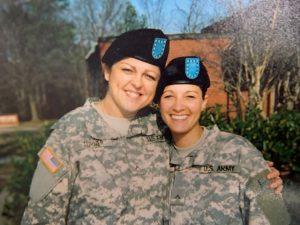
Nicole Kingery
Item Code Creator, Customer Service Support
Branch: Army National Guard
Location: Arcola
“My military experience impacted my life and career with one of the most significant traits I have, inner strength. It made me more stringent and resilient, especially when things have a negative impact. I know that I can handle anything, whether it is a crucial decision that affects the lives of my children or a task entrusted to me at Herff Jones, I do so with confidence! I have the inner strength to commit and execute anything asked of me, regardless of the current workload or stress levels involved. I offer my experiences and voice my opinions, without fear, in hopes of making change happen, but I also value the importance of accepting and moving on from defeat or rejection.
For me, this is a form of true inner strength that, without the military, I’m confident I would lack.”
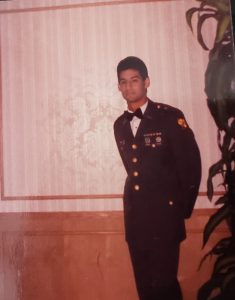
Luis Garza
Scholastic Sales Partner
Branch: U.S. Army
Location: Mcallen, Texas
“Don’t make things harder than they have to be.”
Michael Iannella
Purchasing Agent
Branch: U.S. Air Force
Location: Warwick
“During my 10 years of service in the USAF it has primarily taught me that through dedication and teamwork, anything can be achieved. Attention to detail and meeting schedules was our main objective in the military and these skills have helped me succeed in my career with Herff Jones.
It has been my experience that only thru hard work and devotion can success be obtained, and in times be rewarded. Our team here in Warwick, R.I. continuously strives to produce the highest quality of product and deliver on schedule to ensure that the hard work and dedication our students and athletes put in, does not go unnoticed.
My service in the military was very challenging at times, but knowing how to rely on yourself and your fellow servicemen prove to be very successful. It was also very rewarding to be included in an incentive flight in the F-16.
My career here at Herff Jones has also had many challenges and there will be more to come, but with the skills and professionalism of my co-workers I`m confident those challenges will be faced with determination and victory.
This Veterans Day also marks the one-year anniversary of my son Jared’s service, who is currently serving on active duty in the U.S. Marine Corp. While we honor the Veterans and those who are no longer with us, let`s keep in prayers the ones who are still serving.”

Jamie Hignite
Lead Production Operator
Branch: U.S. Army
Location: Indianapolis
“My Military experience has given me confidence in decision making. Knowing I have executed a plan and carrying it out to the best of my abilities.”
From the Archives:
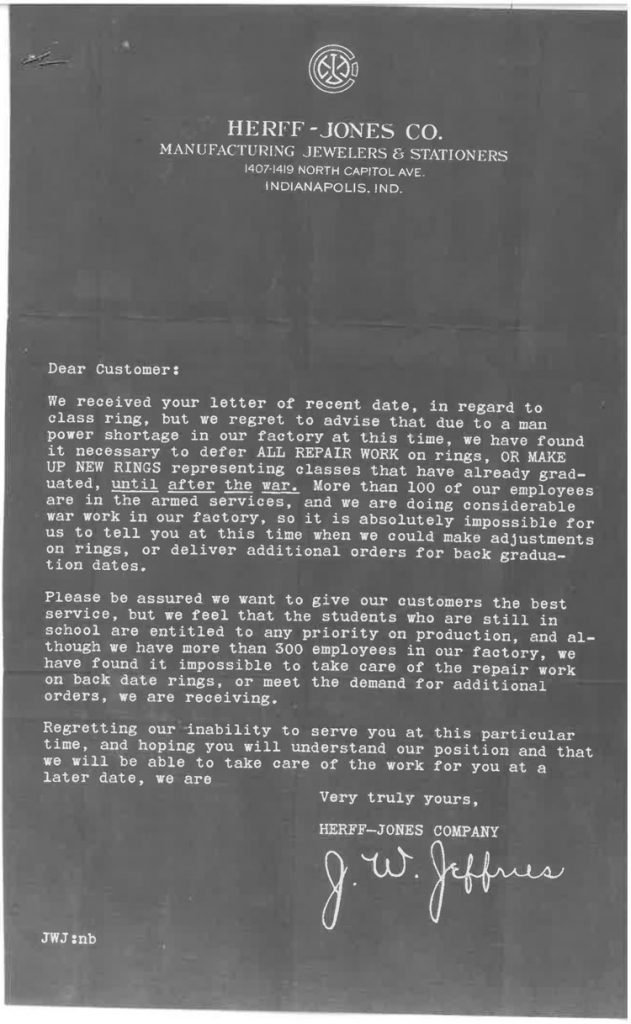
As we prepare to celebrate the company’s 100th year in business this coming January, we’ve been studying up on our history – and uncovering some interesting pieces in the archives. This memo, addressed to a Herff Jones customer, advises on the worker shortages due to WWII. At that time, around one-third of our employees were serving in active duty, and our factory – which was located in downtown Indianapolis – was manufacturing bullet dies.
Are you a veteran looking for employment opportunities or someone who wants to work for a company that honors our nation’s veterans? Check out our open positions HERE.
ABOUT HERFF JONES
Indianapolis-based Herff Jones is the leading provider of graduation and educational products and services designed to inspire achievement and create memorable experiences for students. A division of Varsity Brands, Herff Jones’ products include class rings and jewelry, caps and gowns, yearbooks, diplomas, frames and announcements as well as motivation and recognition programs. Focused on building long-term relationships through a nationwide network of over 2,000 employees and sales partners, the professionals at Herff Jones have been helping elevate the student experience throughout the lifelong journey of education for more than 99 years. For more information about Herff Jones or Varsity Brands, please visit www.herffjones.com or www.varsitybrands.com.
filed under:
Announcement Etiquette High School
Announcements and Namecard Etiquette
Here are some things you need to know about sending out your graduation announcements that will help you save time and give you an A+ in graduation etiquette.
- Send your Announcements to family and friends early enough to arrive two weeks before your graduation date.
- Two envelopes come with each announcement. Address the larger, outer envelope with a blue or black pen. Write out the complete address, using as few abbreviations as possible. Place your personalized return address labels on the upper left-hand corner or the envelope flap. Using Herff Jones Return Address Labels makes it easy and convenient.
Example:
Mr.and Mrs. David W. Smith
4321 Main Street
Hometown, California 54321
- The smaller, inner envelope protects your announcement and is addressed only with the names of the recipients, as if you were speaking to them (for example, Grandma, Uncle Paul, Mr. and Mrs. Johnson). List children by name on this inner envelope only.
Example: Aunt Meghan and Uncle David or Justin and Judy
- Place the “Finishing Touch” Announcement Insert over the announcement text.
- If your announcement includes a namecard slot, place your personal Graduate Namecard there. If it doesn’t, place your namecard on top of the “Finishing Touch” Announcement Insert in the fold so that your name faces away from the announcement message.
- If you are including a Celebration Card or Open House Invitation, place it in the fold in the same manner, facing away from the announcement message.
- Place the announcement in the smaller envelope with the folded edge down and the front of the announcement facing the flap.
- Place the smaller envelope into the larger one with the unsealed flap facing the address side of the larger envelope.
- Seal the outer envelope securely, apply a Class Envelope Seal and send via first.
filed under:
